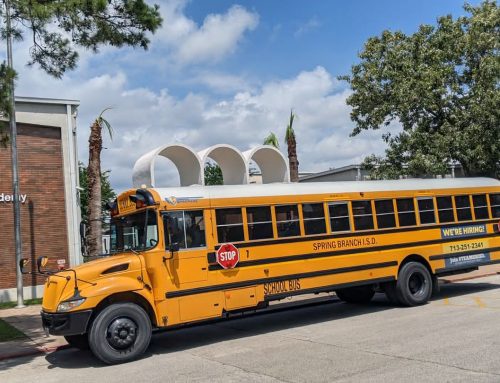We are excited for you to meet Noelle Svoboda, one of our tutors leading the Hedwig Village office! Noelle has experience in teaching a variety of grade levels and subjects, with an emphasis on elementary learning for reading and math. Noelle is committed to fostering academic excellence in a way that is adaptive and enthusiastic. Discover her unique approach to sessions and passions beyond the classroom.
What subjects and classes do you help our students with?
I help with standardized test prep and subject prep across the board: I can help with English, Math and Science up to a high school level (including APs), AP History like Government, US History, etc., and an emphasis on SAT prep.
What is your educational background?
I have a B.S. in Genetics and minored in General Business and Religion at the University of Georgia. I am currently in the last semester of my MBA program at Texas A&M University and am also in the process of applying to medical schools. My tutoring experience prior to General Academic was primarily elementary school students in underserved communities. I learned to manage language barriers and helped students who had fallen far behind their peers in reading and math.
What is your favorite subject to tutor?
My favorite subjects to tutor are lower-level maths including Pre-Algebra, Algebra I, and some Geometry, and I also enjoy helping with Biology, Chemistry, and intro sciences. These were all of the classes that made me excited about learning, and I love passing that spark on. In math, simple ideas compound, so if you master a basic rule like balancing an equation, you can then layer it with other concepts to solve more complex problems. If you get stuck, you can drop back to the simplest form and build forward again. In science, there’s so much to explore and sharing quick facts or big ideas helps the world click into place for students.
What does a typical test prep tutoring session with you look like?
- I start with a quick check-in about their week and ask about any homework completed, setting the agenda for the hour (for example, beginning with Verbal/Reading and then moving to Math so we cover half of a test for the ISEE).
- If there are concerns about the homework, we review the assignment and what went wrong.
- Afterwards, we move onto the test section we are working on that day and work through questions together: the student attempts first, explains their reasoning out loud, and writes out steps while I prompt them with questions to get them to think of a new way of answering if they’re stuck.
- When we’re covering two sections of the test, we switch about mid-session to stay on pace.
- I finish by confirming the next steps and assigning specific homework to meet testing and learning goals (completing modules that emphasize the skills we focused on during the session), and we note what to complete before the next session.
- Some of my younger students like to break down their week and study schedules with me to make sure they get their assignments done before our next session.
What does a typical subject tutoring session with you look like?
Generally, my approach is similar to test prep but with an emphasis on their class assignments and goals.
- During my first session, I get an understanding of what they know, where they are in the class, and their confidence level in assignments. I can build on that to create lesson plans and either catch the student up in their class by filling in missing gaps or help them get ahead by building upon the concepts they are learning.
- Each session starts with a review of what we talked about last session and anything they may have learned independently.
- We then move on to homework and review anything I assigned during the last session.
- After checking for understanding, we move to a new assignment – either building on the last session’s homework with more complex ideas or pivoting to a new topic depending on grade level, subject matter, and topic.
- We talk about the concept first and attempt a problem so I know what they understand and where they need help.
- After that, I use Piqosity or other materials to supplement what they know and fill in gaps with new problems.
What’s your typical approach with working on executive functioning with your students?
With younger students, executive functioning work is very concrete. We plan out the study week together, write down the session plan, and make the process for completing homework unmistakable: what to do, where it lives, and when it gets done.
For example, I had a student screenshotting assignments and instructions, then losing them in her camera roll so she didn’t complete her work. Next session, we paused, wrote everything down, and put the list and instructions in her folder so it was easy to find. From there, we mapped small windows in her day and broke the homework into pieces that fit those windows.
For older students, especially those that are struggling with assignments or are overwhelmed with balancing extracurriculars and test prep/class assignments, we use the last 2-5 minutes of a session co-plan the week, find realistic time slots around classes and activities, and break tasks into clear, first steps. The combination helps them stay organized in session and actually follow through between sessions.
How do you view your role as a tutor?
In each session, I’m a teacher because I diagnose skill gaps, explain concepts clearly, model efficient strategies, and guide practice until the student can solve independently at test pace. I’m also a mentor when I build rapport, normalize mistakes, coach mindset and persistence, and help students plan their study time and hold themselves accountable.
Having both matters: skills without confidence won’t work well under pressure, and confidence without skills plateaus at a low score. When combined, the teacher role delivers accurate methods and repeatable frameworks, while the mentor role turns those methods into durable habits such as better pacing, calmer problem-solving, and genuine ownership of learning. Together they create students who can transfer strategies they learn in sessions to new problems, recover quickly from errors and setbacks, and stay composed and ready on test day.
Tell me about one of your favorite sessions you’ve had.
One of my favorite sessions was a LL ISEE test prep session with a fifth grade student. The week before, we had seen a question that used math she was not confident in: long division and multiplication. For her homework, she attempted the long multiplication and division module on Piqosity. During this particular session, she was ready with lots of questions. She wanted to make sure she was solving the problems correctly and needed a little bit of extra support on the more complex multiplication and division problems. As we worked through some of the problems she struggled with on the homework, I saw her confidence improve. By the time we started reviewing a math section of her ISEE, she was looking for long division and multiplication problems in the test that she could attempt again knowing that she knew what to do. She was able to complete and understand many of the questions she missed during her mock exam just by learning this math tool. I could see how excited she was to finally understand the problems that had seemed almost impossible or taken too long to think about before. Our following sessions kept that same energy as she’s continued to apply the new ideas she’s learning to her missed ISEE questions on old exams and preforming better on new exams.
What is your favorite part of being a tutor?
My favorite part is getting to know each student through what motivates them and how they learn. As I get to know them, I can tailor my approach to fit their style. We keep sessions friendly and fun (bringing in some laughs when it helps), but still structured so we stay on track to meet session and testing goals. I love the “click” moment when we connect the dots together and they can explain the concept back in their own words. That’s what I love the most about tutoring: Those moments show real understanding and growing confidence that I know may students carry into class and test day.
Outside of tutoring for us, what do you like to do for fun?
Reading, Cross stitching, watch Formula 1 racing, cheer on the Georgia Bulldogs (football primarily), cook/bake, travel to new places, hang out with my cats (I bottle-fed a kitten until he was weaned this summer – he’s about 9 weeks now!), and going to Astros games.
If you could have dinner with anyone, who would it be and why?
Rosalind Franklin. I love studying genetics (that’s why I majored in it!), and her X-ray crystallography provided important evidence for the DNA double helix, though her role was unrecognized for years. Over dinner, I’d ask how she paired exacting experimental design with creative inference throughout her work, and how she navigated bias in mid-century labs. Her precision, perseverance, and leadership exemplify the kind of scientist, physician, and problem-solver I aspire to be.
Tutoring with General Academic
General Academic’s subject and test prep tutors provide the structured support to accommodate your student wherever they’re at. We help our students with a wide range of materials, ranging from 1st through 12th grade subject prep, ISEE, and SAT. To get the ball rolling, give us a call at (713) 838-7774 or fill out our tutoring request form.




